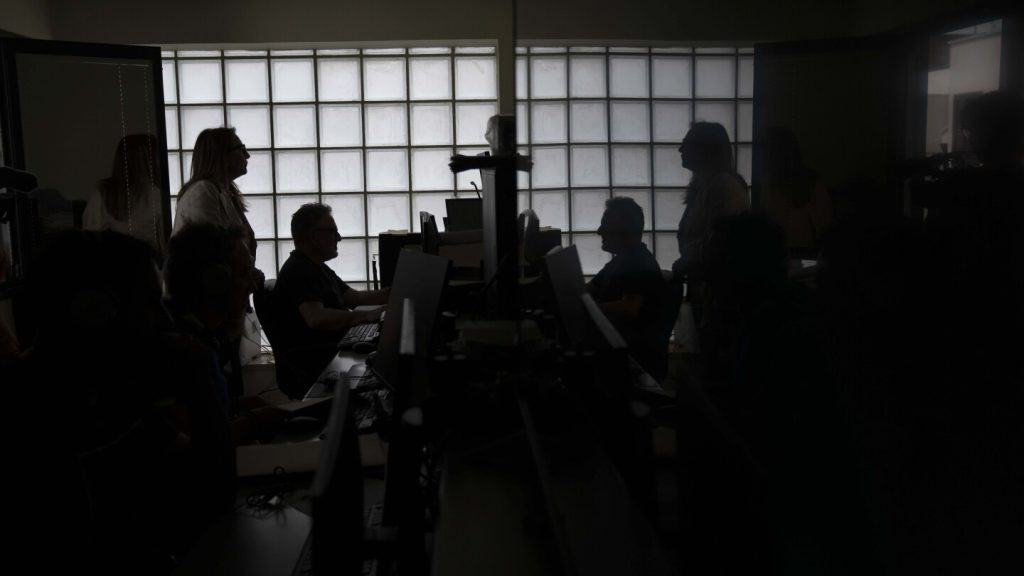Summarize this content to 2000 words in 6 paragraphs in Arabic
ROME (AP) — Last month, an Italian administrative court confirmed the dissolution of the city administration of the Puglia city of Neviano, after an investigation determined that local officials were being unduly influenced by the mafia.The decision barely made news in Italy, where city hall administrations, town councils and local public health agencies are regularly dissolved because of mafia infiltration or collusion, and independent commissioners appointed to take over.While the popular image of the Italian mob was made famous by Don Corleone and the gangland shootouts of “The Godfather,” the reality of organized crime in Italy today is far more nuanced and eats away at the heart of its democracy: local governance.From the awarding of big public works contracts to small-town decisions about who manages landfills, parking lots and beach concessions, local governments are particularly vulnerable to mafia influence and corruption, according to the International Institute for Democracy and Electoral Assistance, an interagency organization.
Puglia, which will host this week’s Group of Seven summit, ranks fourth among Italian regions in the number of local administrations that have been dissolved because of mafia infiltration, with 26 decrees issued since 1991, out of a national total of 326, according to Avviso Pubblico, an Italian association that tracks the decrees.
That fourth-place ranking also corresponds to the fourth-place status of its local mafia, the Sacra Corona Unita, on the hierarchy of Italy’s mafia clans.
The SCU is the youngest and smallest of the organized crime groups in the country, after the ‘ndrangheta in Calabria, the Camorra in Campania and Cosa Nostra in Sicily. And it is the only one whose origins are really known: it was founded in prison in the early 1980s by Pino Rogoli as an autonomous Puglia-based alternative to other mobs.
While initially focusing on the trafficking of cigarettes and other contraband with Balkan countries, the SCU’s clan-based organization morphed into drug trafficking and extortion. In the 2000s, it began a new phase “of getting rooted in the territory, the so-called cover-up and camouflage phase,” said Marilù Mastrogiovanni, an investigative journalist and journalism professor at the University of Bari.That phase, which is bearing fruits for clans today, involved avoiding calamitous acts of violence “so that everyone, from ordinary citizens to law enforcement, would forget about it,” she said.Now, the focus is on laundering drug profits through legitimate front companies, many catering to Puglia’s booming tourism industry, while infiltrating the local public administration to steer public contracts its way, said Carla Durante, head of the Lecce office of Italy’s Anti-Mafia Investigative Directorate.Europol, the European police force, says 60% of the organized crime groups it tracks in Europe engage in some sort of corruption, from petty bribery of public officials to multi-million euro corruption schemes.
“Corruption erodes the rule of law, weakens institutions of states and hinders economic development,” Europol said in its latest report, “Serious and Organized Crime Threat Assessment.”___This story, supported by the Pulitzer Center for Crisis Reporting, is part of an ongoing Associated Press series covering threats to democracy in Europe.
window.fbAsyncInit = function() {
FB.init({
appId : ‘870613919693099’,
xfbml : true,
version : ‘v2.9’
});
};
(function(d, s, id){
var js, fjs = d.getElementsByTagName(s)[0];
if (d.getElementById(id)) {return;}
js = d.createElement(s); js.id = id;
js.src = “https://connect.facebook.net/en_US/sdk.js”;
fjs.parentNode.insertBefore(js, fjs);
}(document, ‘script’, ‘facebook-jssdk’));









